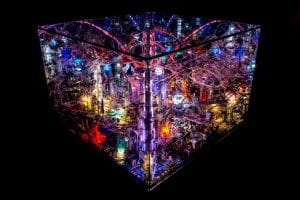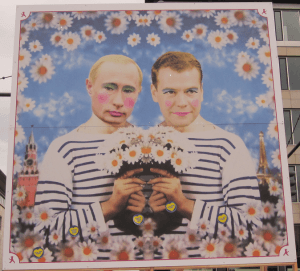There have been tensions between native Russians and ethnic minorities since the Tartar Yoke of the 13th century. Successive rulers either tried to keep an uneasy peace or fanned the flames of division. Frederica Prina discusses the Russian government’s latest strategies for creating an identity that embraces all of Russia’s citizens.
One would not normally, perhaps, describe the President of Russia as ‘anti-Russian,’ but this is how not a few people described him, waving their banners, on the annual ‘Russian March’ that took place on National Unity Day, 4 November 2012. Some 6,000 Russian nationalists, from Moderate to Far Right, gathered in central Moscow. Alexander Belov, the leader of the (banned) ‘Movement Against Illegal Immigration’, was cheered when he called President Putin an, ‘Enemy.’ In what way, an enemy, on National Unity Day?
Taken to extremes, Russian nationalists would like to keep Russia only for the Russians; they think that the Russian Government has not done enough to establish a Russian nation state. Given Russia’s turbulent history, as a multi-ethnic Romanov empire and a multi-ethnic Soviet Union, such caution is understandable. In the same way that creating a Russian citizen out of an ethnic imperial melting pot defeated many a Romanov, so the Soviets, while they aimed for the creation of a homo sovieticus (whose ethnic consciousness would be overridden by Communism), settled for managing the ethnic diversity they had inherited.
Ethnic diversity management
What we might call ‘ethnic diversity management’ was incorporated into Soviet policy. It included the establishment of titular republics (Uzbekistan, Ukraine, Armenia…) where ethnic minorities were temporarily ‘assigned’ until, that is, they became model Soviet citizens. The American sociologist Rogers Brubaker described it as an, ‘irony of history’ that what should have been a temporary arrangement, however, turned into the consolidation of ethnic differences. And what of the Russians in the USSR? How were they assigned? That was never determined, perhaps because it was not thought necessary, or could it have been that the Soviets thought that it was much too difficult to define ‘Russianness?’ One might say that there was a marginalisation even at the Russian centre of the USSR; and that marginalisation included Russian Orthodoxy, hitherto a bastion of Russian national identity.
Thus it was that, during the Soviet period, a citizen of the USSR was neither wholly ethnic, nor wholly Soviet. The national consciousness of the USSR’s many ethnic groups was never extinguished; and historic Russian identity – whatever had survived the Romanovs – was an ill-defined concept. (more…)
 Close
Close






